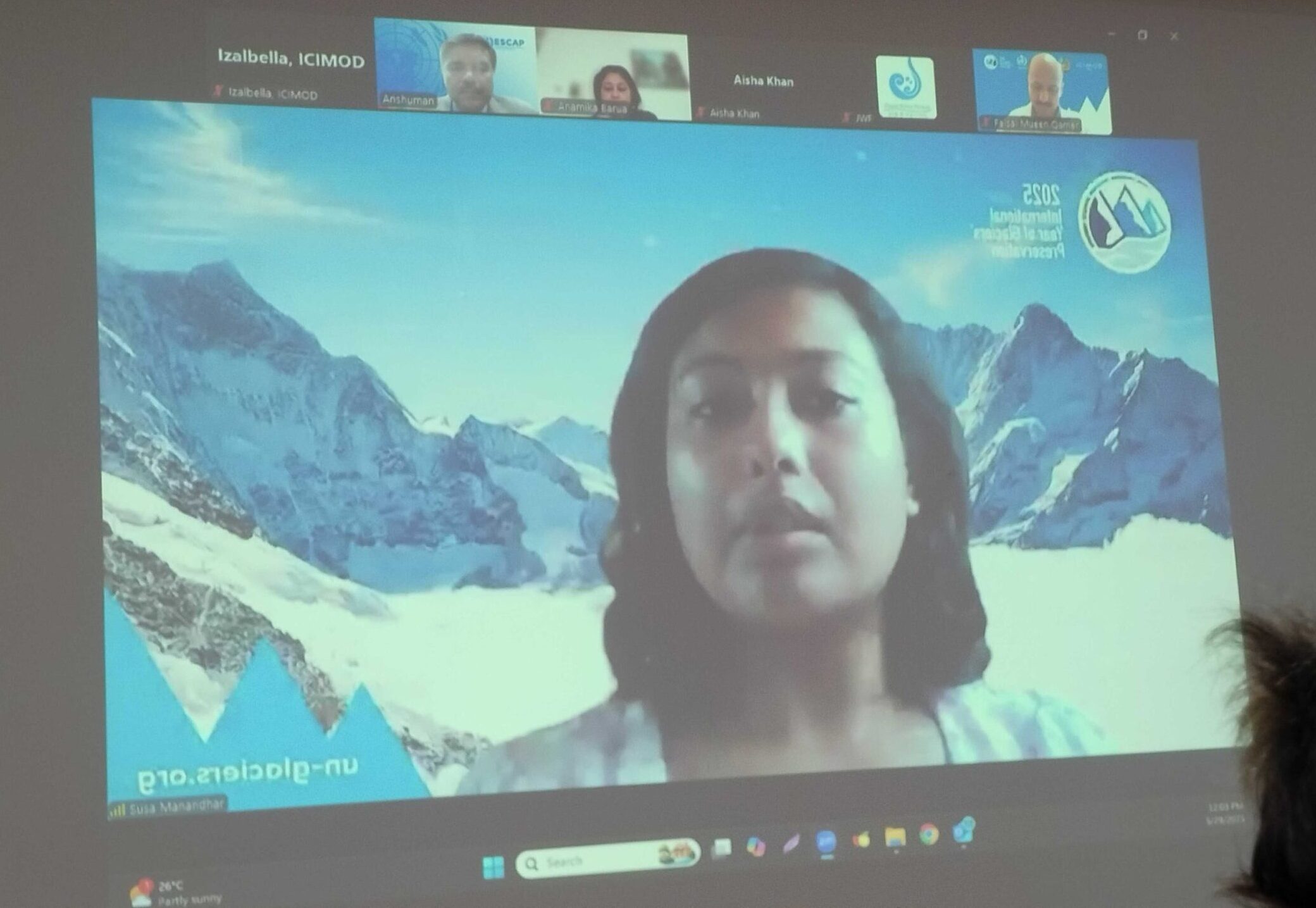The Small Earth Nepal (SEN) in collaboration with Kathmandu Valley Water Supply Management Board (KVWSMB) conducted a “Training workshop on water quality assessment and monitoring” on 2nd April 2021 at the KVWSMB Meeting Hall, Bhaisepati, Lalitpur. The workshop was a part of the project ‘An innovative Floating Treatment Wetland System (FTWS) using the microcosm study to remediate polluted waterbody: A case study of Nagdaha’ under Nepal Academy of Science and Technology (NAST) Research Grant Program. The workshop was organized in order to strengthen the capacity of personnel from KVWSMB and SEN to build a mutual understanding among the concerned personnel.
The workshop was moderated by Ms. Aashna Shakya (Research Associate at SEN). The workshop commenced with a brief welcome speech by Ms. Shakya. Water resources expert Dr. Dhiraj Pradhananga (President of SEN and Asst. Professor of Tribhuvan University) presented the overview of the project and shared the working mechanism of FTWS. Dr. Pradhananga also added how important this project can be for the environment (both for pollution and aesthetic-wise) as well as economically. He further discussed the disadvantages that can occur during the project and methods for solving them. Then, another session was delivered by Dr. Sadhana Pradhanang Kayastha, Professor of Tribhuvan University and Academician of NAST. Dr. Pradhanang highlighted the importance of water quality assessment and monitoring and discussed various factors affecting water quality for water-related research projects. She emphasized the importance of interpretation of the obtained results. She also stressed how important it is to know about lithology and all the chemical components of the site for doing any project. Dr. Pradhanang elucidated everything that was required for the project in a very simple and understandable way. Dr. Anusuya Joshi (Senior Environmental and Social Safeguard Expert of Alternative Energy Promotion Center and Faculty of Patan Multiple Campus) explained appropriate statistical tools for data analysis, interpretation, and visualization. Dr. Joshi suggested an assessment of pre-planning the variables and their corresponding analysis methods in order to avoid flaws while conducting the experiment and analysis. Furthermore, Dr. Joshi illustrated the importance of occupational health and safety aspects while sampling and performing experiments by sharing her own experiences on water quality assessment and monitoring.
Participants then visited the laboratory of KVWSMB and the experimental site to know more about the project. The workshop was positively received by the participants. The energy and enthusiasm shown by the participants during the training workshop through interactions were overwhelming. The workshop officially ended with the closing remarks by Dr. Dhiraj Pradhananga.





